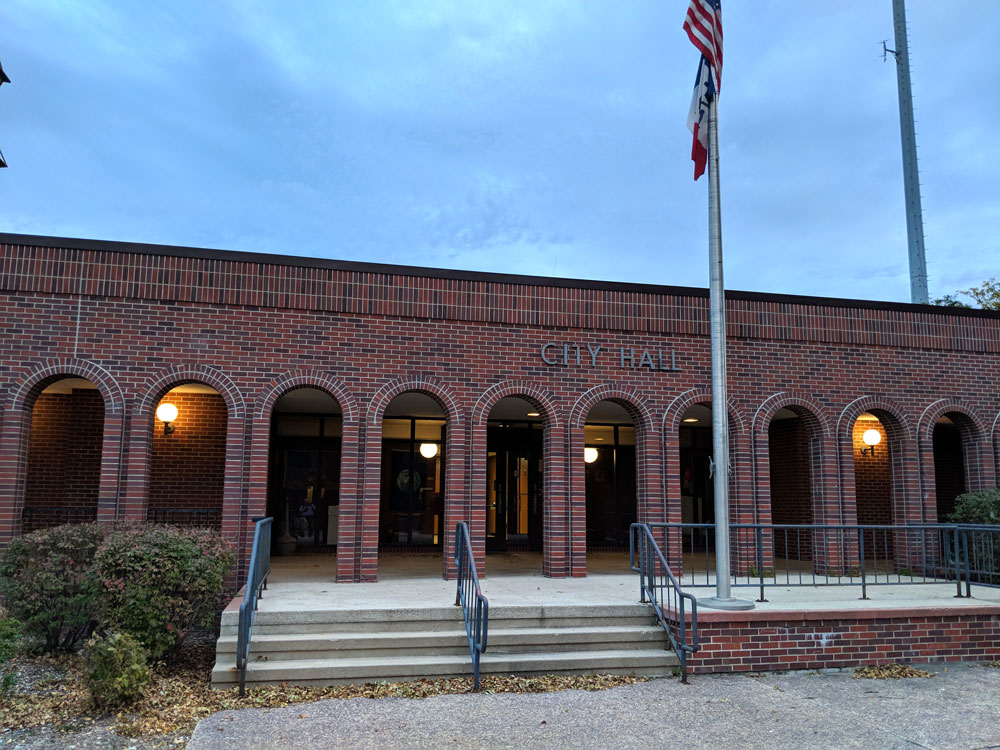Extra revenue, lower spending boost Floyd County year-end carryover by about $1 million
By Bob Steenson, bsteenson@charlescitypress.com
Through a combination of lower-than-projected expenditures and higher-than-projected revenues, Floyd County has a carryover balance at the end of the fiscal year ending June 30 that is almost a million dollars higher than what was in the budget.
That news, discussed at the county Board of Supervisors workshop meeting Monday morning, comes at an opportune time, because the Iowa Department of Management recently reduced the amount of property tax money the county can collect by a total of $1.184 million, due to an error in a county resolution regarding the maximum property tax amount.
County Auditor Gloria Carr walked the supervisors through almost a dozen spreadsheets at the meeting, showing the impact of the state-ordered property tax cuts on various parts of the county budget, then showing where more than two dozen county departments either spent less than budgeted, received more income than budgeted, or in some cases both.
Although the state-ordered reduction in property tax collections came as a shock to Carr and the county supervisors, who had spent months crafting the budget for the new fiscal year that started July 1, it will result in lower county taxes for county property owners.
Under the budget the supervisors passed, the property tax levy for all county property owners was going to be $7.50 per $1,000 of assessed taxable valuation. Under the reduction ordered by the state, that figure drops to $6.21 per $1,000, a reduction of $1.29 per $1,000 taxable valuation.
For example, on a home valued at $200,000 with a taxable valuation of about $112,500 after state rollback and homestead tax credit, the county portion of property taxes will be reduced about $145.
People who live outside of incorporated cities, who pay an additional rural services tax, will see that additional levy rate fall from what had been budgeted at $3.42 per $1,000 to $3.36 per $1,000.
In addition, every county in the state is seeing a small decrease in taxes beyond what was budgeted for the new fiscal year because the Iowa Legislature reduced the amount of mental health and disability services (MHDS) tax each county collects, as part of a plan to shift those costs over to the state.
Going through the county department expenses and revenues for the year that ended June 30, Carr said the county had budgeted to spend about $6.142 million last fiscal year, but the county departments spent only a total of $5.567 million, resulting in an additional $575,000 in carryover funds.
The departments had budgeted to receive revenue of $5.623 million, but had actually received $6.038 million, resulting in additional revenue of $414,000.
“That net effect is $989,482,” Carr said, referring to the general basic fund. An additional $53,065 will be carried over in the general supplemental fund and an additional $33,440 in the rural services fund.
“So we have more revenues than expected and less expenses,” Carr said.
Carr said the county always budgets conservatively, and the supervisors had sent the message out that departments needed to watch their spending carefully.
“I think departments really took heed of the message that if they could hold off on anything — they were really responsible,” she said.
Supervisor Linda Tjaden said when some people talk about cutting spending they assume that services were cut.
“We did not cut service,” she said. “We did not.”
Carr said even with the additional carryover funds the county will need to keep a tight budget in the current fiscal year. It had reduced the projected carryover for the current year that ends next June to 18%, which is significantly below the 25% in carryover that it usually tries to budget to carry the county through the first quarter before new property tax revenue starts coming in.
A large part of expenditures this fiscal year is about $2 million left to spend on the law enforcement center and courthouse update project, and Carr advised the board to continue keeping a close eye on every expense.
The supervisors have been talking for some time — ever since bids on the project came in significantly higher than had been estimated by the project architect — about ways to reduce spending or put some of the courthouse project costs on a “five-year plan” to be completed with future revenue.
And, Carr said, the county is still waiting for definitive instructions on what can be covered under the $3 million the county is eligible to receive from the federal American Rescue Plan.
If the county can show it lost revenue because of COVID-19, that money can be used toward the law enforcement center and courthouse project, she said.
The Floyd County property tax cut ordered by the State Appeal Board came as the result of a mistake the state board found in the county’s maximum tax resolution, passed in early March. That resolution, passed after a public hearing, sets the maximum tax that can be collected in some of the biggest county budget categories.
Carr has said that she mistakenly copied the figures from what was then the current fiscal year instead of the new fiscal year and put them in the suggested resolution for the supervisors to pass. None of the three supervisors noticed the error when they passed the resolution.
When the supervisors passed the new county budget for the 2021-22 fiscal year, they used the figures that were supposed to have been in the max tax resolution, not realizing the wrong figures had been used.
When the state discovered the error it ordered the county to use the figures that were in the max tax resolution, reducing the property tax collection by $1,142,035 in the general supplemental fund and by $42,264 in the rural services fund.
Also at the supervisors meeting Monday morning, the board:
- Tentatively agreed to pay a bill for $2,530 to the Nora Springs Volunteer Ambulance for transporting a body to the state medical examiner’s office at Iowa State University. No one from Hauser Weishaar Funeral Home or AMR Ambulance, which usually handle such transports, was available at the time.
The $2,530 fee — $400 base rate plus $15 per mile — is the rate that AMR charges the county when a body transport is required, although AMR has said even at that rate it would rather not be involved in transporting bodies. The funeral home has a contract to transport bodies when it has a vehicle and personnel available for $1,000 per trip.
Nora Springs Ambulance representative Dave Luett said he’d be interested in doing more transports when available and Supervisor Ray Schwickerath said he would contact Luett regarding negotiating a contract.
- Received an update on the progress of the law enforcement center project. Tim Nordlund, a regional manager for The Samuels Group, the county’s construction manager, said the current schedule is to be finished with LEC construction in August, and that jail personnel are currently training on the security equipment in the new jail.









Social Share